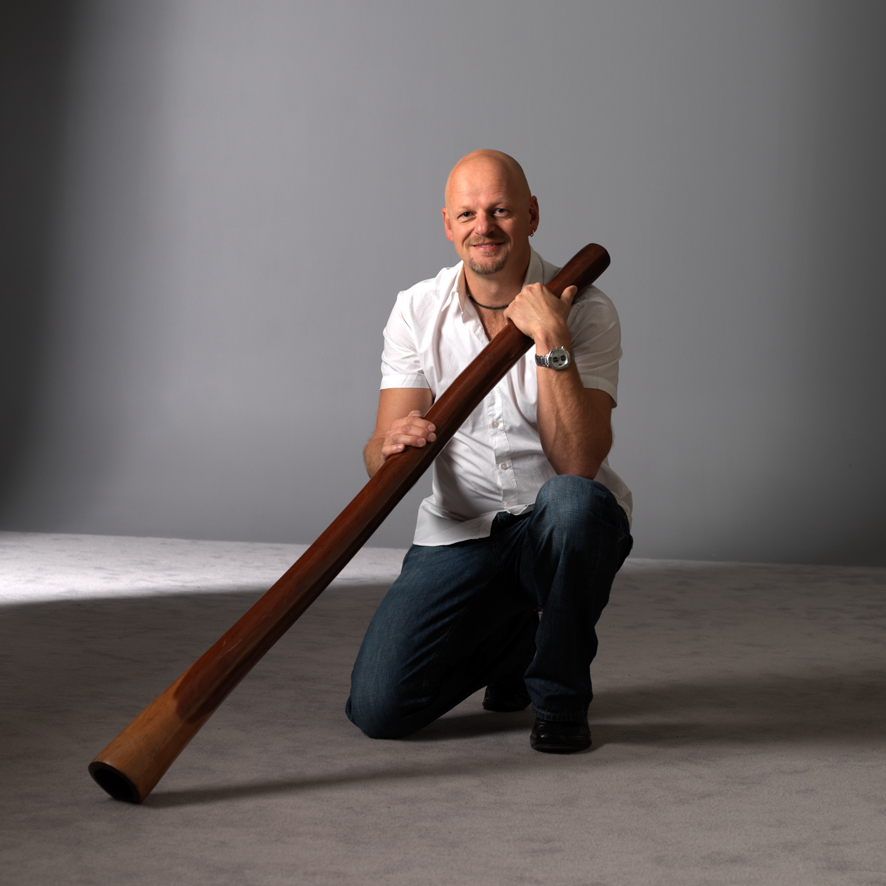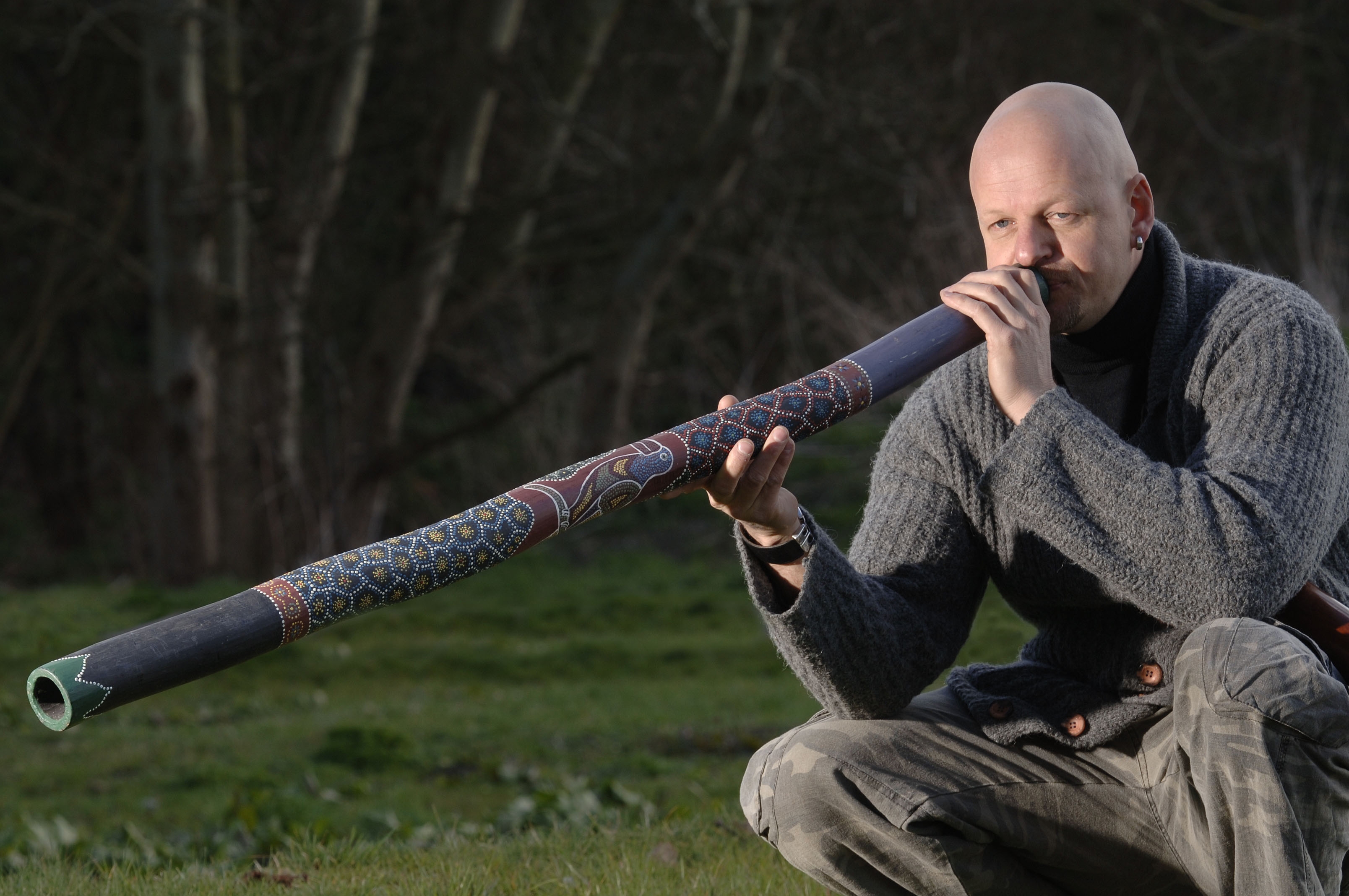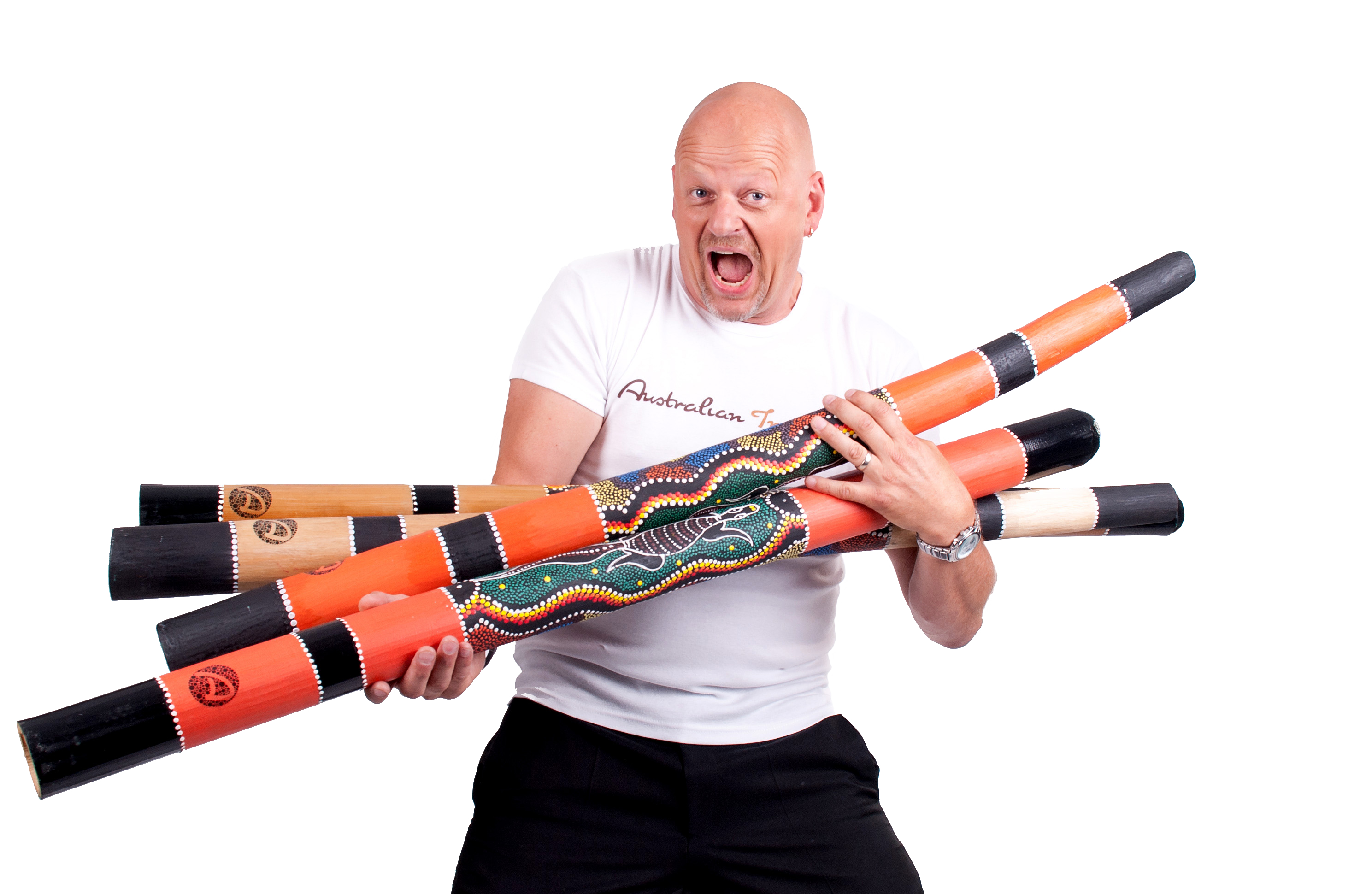
Australian Treasures in 1 minute!
Watch 3 Free Lessons Now!
Not convinced yet? Click hier to take 3 free lessons with no obligation.
No account needed!
Who am I?
I am Niels de Lang, musician - raised in the countryside, born in Amsterdam in 1966. For decades, I have taken great pleasure in introducing as many people as possible, young and old, to the didgeridoo.
How? By making making making music on this instrument as simple and fun as I can and making the didgeridoo accessible and affordable
Because the more people experience pleasure and satisfaction on this amazing instrument, the more positive impact we can have on the world together.
Music and happy people have more to offer the world.
You happy = we happy. Simple.
My life
I live in Hoorn, a beautiful, small town near the IJsselmeer and not without reason....
I love water sports such as kitesurfing, windsurfing, swimming and sailing. Being near or on the water gives me a wonderful feeling of freedom and connection with nature. The nice thing is that my children also share these passions.
I live minimalistic and care not much for luxury. Just give me a bus camper to drive into adventure. That makes me happy.
By seeking a good balance in what I do as much as possible, I experience a pleasant peace in my life. This helps you make better choices and also keeps you a nice person for others.
The didgeridoo has certainly helped me to find that balance.
What I do
Since 1990, I have inspired hundreds of thousands of people by making music and giving workshops and courses on the didgeridoo. I am still active with my bands as a didgeridoo player and guitarist and have played at numerous festivals and theatres at home and abroad.
Besides lessons and workshops for schools and companies, in 2004 I successfully developed the one-day workshop Didgeridoo & Circular Breathing for beginners, snorers and (sleep) apnoea patients.
Tens of thousands of people use the didgeridoo as an alternative way to relieve symptoms such as snoring, apnoea, hyperventilation and shortness of breath and to contribute to their own health & well-being. Everyone wants to live a healthy life.
So there are GPs, therapists, ENT and pulmonologists who refer their (apnoea) patients to Australian Treasures' one-day workshops. Because it works.
With a global brand, Australian Treasures is a leader in everything to do with the didgeridoo and playing the didgeridoo. Of course fair-traded because that makes us and the world better off!


My Inspiration
As a child, partly due to musical parents, I was already into music, playing songs on the ukulele by the age of 6. Then guitar and didgeridoo followed. Since then, music has always been the common thread in my life. I found it fascinating that making music never gets boring and that it can greatly enrich your life and the lives of others.
I get my inspiration from good listening, music, piles of books and biographies, but mostly by getting started and experimenting myself.
Then I find out which things work best, and try to shape those techniques according to my own understanding.
Because the better it works, the more results you get.
Why make it difficult when it can be easy
How do we make learning something new fun and effortless?
At Australian Treasures, we learn, no nonsense, in small, clear steps. That way, we bypass impatience and get more done with less effort.
Soon you get into the right flow and enjoy the progress. How wonderful is that!


Frequently asked questions
Read our frequently asked questions. Get in touch if you can't find your question!
-
Where can I buy a didgeridoo online?
You can buy a didgeridoo in our didgeridoo online shop Australian Treasures. When you buy a didgeridoo including the online course, you get a discount on the complete course package. All our didgeridoos are tested by our didgeridoo experts. Check out the wide range of didgeridoos for beginners and advanced players at www.australiantreasures.com. With our didjes, you can also watch a demonstration video and hear and see how the didgeridoo sounds!
Does a compact travel didgeridoo or spiral didgeridoo sound the same as a normal didgeridoo?
Yes it has the same low tone as a normal didge. The long tube that guarantees a low tone is 'rolled up' into a spiral, so to speak. Or, as with the special travel didge, 'folded' into a zigzag shape inside a wooden box. Moreover, you can easily take these didjes to lessons, performances or when you travel and still want to do your didge exercises!
Can anyone learn to play didgeridoo?
Yes, didgeridoo playing is suitable for anyone to learn. We have been giving didgeridoo workshops to the education sector for many years and even pre-school and primary school children can get a sound out of it.
-
How do you make your own didgeridoo?
You can easily make a didgeridoo yourself from a PVC tube. Sometimes you don't have to do anything about it and a PVC pipe that you can buy at a hardware store is enough. The ideal length for a homemade didgeridoo is about 130cm. This length gives you a low didgeridoo tone. You can even give the tube a nice shape by heating the PVC tube and bending it to give the didgeridoo a nice branch shape. If necessary, make a beeswax mouthpiece on the didgeridoo and paint the didgeridoo with acrylic paint for a nice end result.
How long does it take to master circular breathing?
That is different, but with regular practice you can learn circular breathing within a few days.
What is a didjeridu?
An Australian Aboriginal wind instrument in the form of a long wooden tube, traditionally made from a hollow branch, which is blown to produce a deep, resonant sound, varied by rhythmic accents of timbre and volume.
-
Can you play didgeridoo with a beard?
A beard makes it a bit more difficult to play - but it's certainly not impossible. You only get a more visible mark around your lips because you have to press harder to get a good seal.
No sound comes out of my didgeridoo, is my didgeridoo broken?
If you can't blow the basic note on your didgeridoo it may indicate a leak, crack or hole in your didgeridoo. However, you can easily repair your didgeridoo with beeswax. If you find a crack or hole near the mouthpiece, it will be difficult to get any sound out of your didgeridoo. A crack or hole at the end or bell of the didgeridoo will have little or no effect on the didgeridoo sound. The solution is to plug the leak which you can do very simply with beeswax. The advantage of beeswax is that it moves with the contraction and expansion of the didgeridoo's wood. Moreover, Australian aborigines also repair their didgeridoos in this traditional way
What does the online didgeridoo course cost?
The online course costs 34.50 pounds
What did others think?
Our workshops have helped many people with
circular breathing and have been able to reduce snoring as a result.
-
-
Playing didgeridoo makes you fit! I am very tired after a day's work. But after practising on the didgeridoo, I have energy again! What a great instrument this is. I never thought blowing on a didgeridoo would take so little effort. Super happy.
Saskia vd Plas (participant of the one-day workshop) -
Good professional information about the products. I bought a travel didge and a didge box. Both are fine. Please note that you have to breathe them in a little before they run smoothly. Circular breathing is therefore very easy to do. I decorated the box with art. Makes it slightly different.
Did Gro -
Didgeridoo ordered and received in only 37 hours.
Great sound
Thank you Australian Treasures
Sam Kempinaire
-
-
-
Hi all, how nice that there are so many didge fans! I've been doing it for six months now and it's going really well. I even have a bucket of water with PVC pipe next to my bed so I can practice circular breathing every day... I am still very grateful that I did the Didgeridoo & Circular Breathing workshop with Niels.
Sharon (participant one-day workshop) -
Ok, it was a bit late at night, but I just nearly blew myself into a wonderful trance. Call it didgeridoo meditation. For longer and longer. . . Great!
Greetings Tom (one-day workshop participant) -
Participated in one of the workshops. Was a great experience!
Willy Veld (participant in one-day workshop)
-
-
-
Everything was perfect! I was able to track the shipment at all times and the package has been delivered in excellent condition. The items match the description. Thank you!
Ambra Focchi -
Totally satisfied with the instrument, from the manufacture to the sound it produces. Excellent for learning, go for it!
Riccardo Presciuttini -
Hi Niels,
In November I went on a course with you in Beets, which was an enjoyable experience and left me with great memories, but more importantly I got rid of my apnoea nicely!In my conversation this morning with the pulmonologist, I mentioned that I took the course with you and that I use CBD oil daily. Whether it is the combination or because of either, I don't know, but I am nicely rid of it. From 30 apnoeas to 1!But I was also surprised by the doctor's attitude, because he was more than interested and asked me if I would email your details and for the address where I get my CBD. Because as he indicated, I regularly experience people who cannot get used to the cpap, so maybe we can help them with this.I think this is a development I'd like to share with you and should more applications come to you from the south, you'll know what it might be due to. Always nice to hear. Right?
Greetings Henk Poos (participant in one-day workshop)
-


